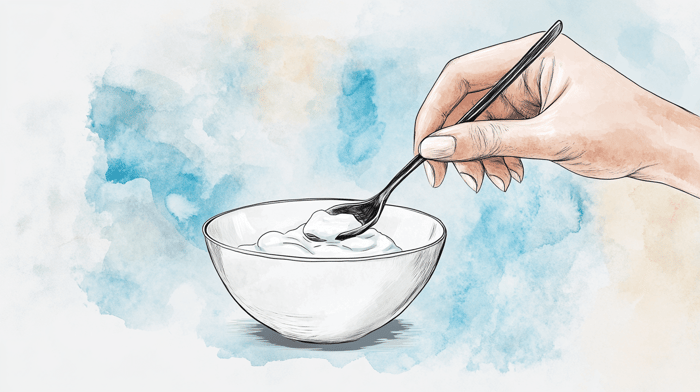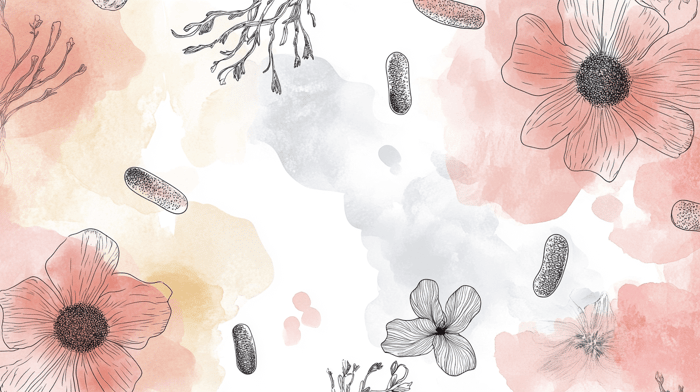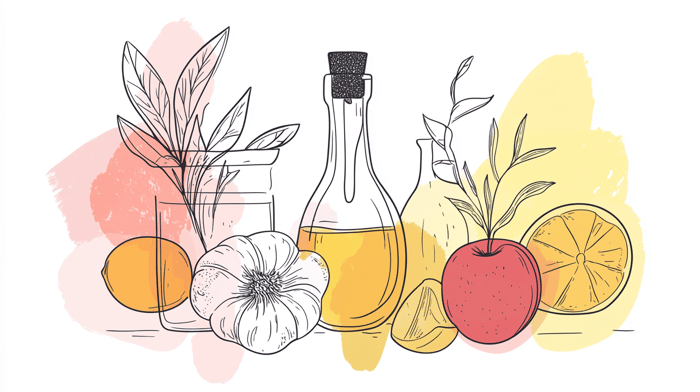In the United States, 21.2 million women between ages 14-49 have experienced bacterial vaginosis (BV). Many women have no symptoms, while others confuse the symptoms with a yeast infection.
In a healthy vagina, good bacteria maintain balance by keeping harmful bacteria in check. When this balance is disrupted, harmful bacteria take over, causing bacterial vaginosis. This leads to symptoms such as foul odor, vaginal discharge, itching, and painful urination.
BV is most common in women who use douches and sexually active women. While BV can clear up on its own, it's essential to consult a doctor if symptoms persist. Here are some home remedies that may help alleviate symptoms and treat the infection.
12 Best Home Remedies for Bacterial Vaginosis
Yogurt
Yogurt is a natural probiotic, introducing beneficial bacteria into the body. This helps create a balanced environment in the vagina, fighting off harmful bacteria.
- Non-dairy yogurt: Coconut milk or soy yogurt alternatives
- Frozen yogurt: A healthier alternative to ice cream
- Skyr: Icelandic-style yogurt, high in protein
- Greek yogurt: Creamy and thick, often used in dips
- Kefir: Homemade kefir yogurt is rich in probiotics
- Non-fat/Low-fat yogurt: Fat-reduced options for a lighter choice
Note: Avoid applying yogurt directly to the vagina, as it can worsen symptoms.
Garlic or Garlic Supplements
Garlic contains antibacterial compounds, such as diallyl sulfide, which is highly effective in fighting bacteria. Studies show that garlic supplements can treat BV as effectively as antibiotics, with fewer side effects.
Mince or crush garlic 10 minutes before using it to activate its antibacterial properties. Always consult your doctor before taking supplements, and never apply garlic directly to the vagina.
Tea Tree Oil
Tea tree oil has antifungal and antibacterial properties that may help treat BV. Dilute it with a carrier oil, such as almond, olive, or coconut oil, to avoid irritation. Before use, test a small patch of skin for allergic reactions.
Note: Avoid using pure tea tree oil directly on the skin or vaginal tissue.
Herbs
Certain herbs have been shown to treat BV. Here are a few:
- Echinacea: Reduces inflammation and fights harmful bacteria
- Lavender: Helps treat vaginal infections
- Oil of oregano: Prevents bacterial infections
- Neem oil: Kills bacteria
- Goldenseal: Contains berberine, which fights bacteria and fungi
- Grapefruit seed extract: Treats bacterial infections
Probiotics
Probiotic supplements and yogurt containing live cultures help prevent and treat BV by restoring the balance of good bacteria. Studies show that probiotics containing RC-14 and GR-1 strains are particularly effective.
Hydrogen Peroxide
Hydrogen peroxide vaginal washes may restore vaginal pH, reducing odor and discharge associated with BV. Use a 3% hydrogen peroxide solution for one week, but consult a doctor if symptoms persist.
Boric Acid
Boric acid, when used as a vaginal suppository, can help treat BV. It has antifungal and antiviral properties but is toxic if ingested, so keep it away from pets and children. Pregnant women should avoid using boric acid.
Apple Cider Vinegar
Apple cider vinegar may help treat BV by acidifying the vagina, restoring balance. However, more research is needed, so consult your healthcare provider before use.
Avoid Douching
Douching disrupts the natural pH of the vagina, increasing the risk of infection. The vagina cleans itself naturally, so avoid douching to maintain balance.
Safe Sex
BV is common in sexually active women. To reduce the risk of infection, follow these tips:
- Urinate after sex: Clean the vulva with water after urination
- Use barrier protection: Condoms reduce the risk of BV
- Avoid switching from anal to vaginal sex: Change condoms before switching
Good Hygiene
Maintaining good hygiene can help prevent BV. Follow these practices:
- Wash hands before touching the vagina
- Wear breathable cotton underwear
- Clean the vagina with water only
- Avoid perfumed vaginal products
Breathable Cotton Underwear
Wearing cotton underwear allows the area to breathe, preventing moisture buildup that can worsen BV. Change your underwear daily, and consider sleeping without underwear at night.
Conclusion
Antibiotics are the primary treatment for BV, but the home remedies above may help alleviate symptoms and restore balance. If symptoms persist or recur, consult your doctor for further treatment.











